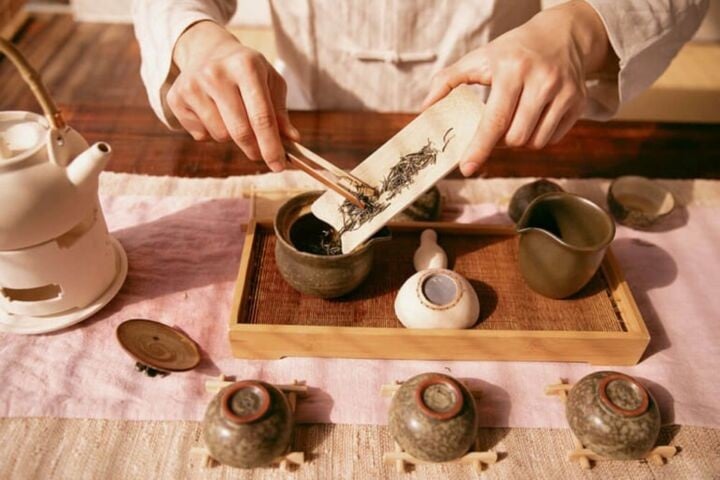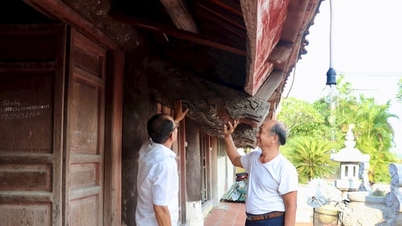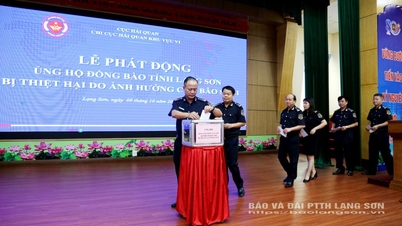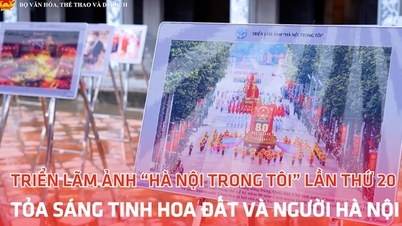As Beijing slowly fades into the night sky, 36-year-old Shi Jinxi steps away from the bustling crowds and into a completely different space - a tea-scented classroom.
At Yi Hai Xin Night School, housed in a bustling commercial building in the city center, Shi attends a tea art class where she chats quietly with her classmates as she carefully weighs tea leaves, pours boiling water, and watches the leaves swirl in her cup. Tension seems to melt away with each wave of steam.
"I look forward to this moment every day after work ," Shi shared.
Illustration photo
Spend money to balance emotions
Shi is one of more than 50,000 students who have attended Yi Hai Xin since it opened in 2023, more than half of them young people. The classes, which include African drumming, Latin dancing and wine tasting, not only help students learn new skills but also serve as a stress reliever and a way to connect with others.
"At first I just wanted to try tai chi," Shi said. “But then I signed up for everything, from drums to public speaking. It helped me in my work and gave me confidence.”
As a trainer at a securities firm, Shi said skills from evening classes such as tea art and wine tasting give her more to talk about with her boss and colleagues.
The night class model is part of a growing trend that Professor Zhang Peili, of the School of Economics at Renmin University of China, calls “feel-good spending,” where young people are willing to part with money in exchange for emotional experiences, personal joy and spiritual satisfaction.
From stress-relieving toys to the global success of Pop Mart's Labubu collection, and now the revival of night school - the model continues to unlock new consumer potential.
Great demand, wide open market
Gen Z accounts for less than 20% of China's population but generates 40% of total consumption, according to data from the National Bureau of Statistics. However, supply has not kept up with demand.
Wang Lulu, another student at Yi Hai Xin, shared that she had long wanted to learn first aid, but every time she signed up, the class was full.
Currently, night schools in China are mainly divided into two categories: public schools run by organizations such as youth organizations and private establishments such as Yi Hai Xin. Ensuring quality and accessibility requires cooperation between the government , the community and businesses, Professor Zhang noted.
She believes night schools could spur new cultural and entertainment consumption – similar to the rise of grassroots sports leagues, which are thriving in rural China.
“ As young people develop skills and interests, they will begin to crave group activities such as public performances or amateur competitions,” said Ms. Zhang. “ From there, a mass cultural entertainment industry can be formed.”
According to Liu Guojie, principal of Yi Hai Xin, the school offers more than 100 classes a week, about a third of which are tailored to the needs of the students. “ Students often tell me directly what they want to learn, and we build the class accordingly ,” said Liu.
He said this model is not limited to Beijing and Shanghai. "We plan to expand to second and third-tier cities, because young people there also need such a spiritual outlet," Mr. Liu Guojie said.
Source: https://baolangson.vn/lop-hoc-ban-dem-o-trung-quoc-noi-gioi-tre-tim-cach-giam-ap-luc-cuoc-song-5053920.html



![[Photo] Prime Minister Pham Minh Chinh chairs the Conference to deploy the National Target Program on Drug Prevention and Control until 2030](https://vphoto.vietnam.vn/thumb/1200x675/vietnam/resource/IMAGE/2025/10/09/1759990393779_dsc-0495-jpg.webp)

![[Photo] Prime Minister Pham Minh Chinh chairs a meeting of the Government Standing Committee on overcoming the consequences of natural disasters after storm No. 11](https://vphoto.vietnam.vn/thumb/1200x675/vietnam/resource/IMAGE/2025/10/09/1759997894015_dsc-0591-jpg.webp)



























































































Comment (0)